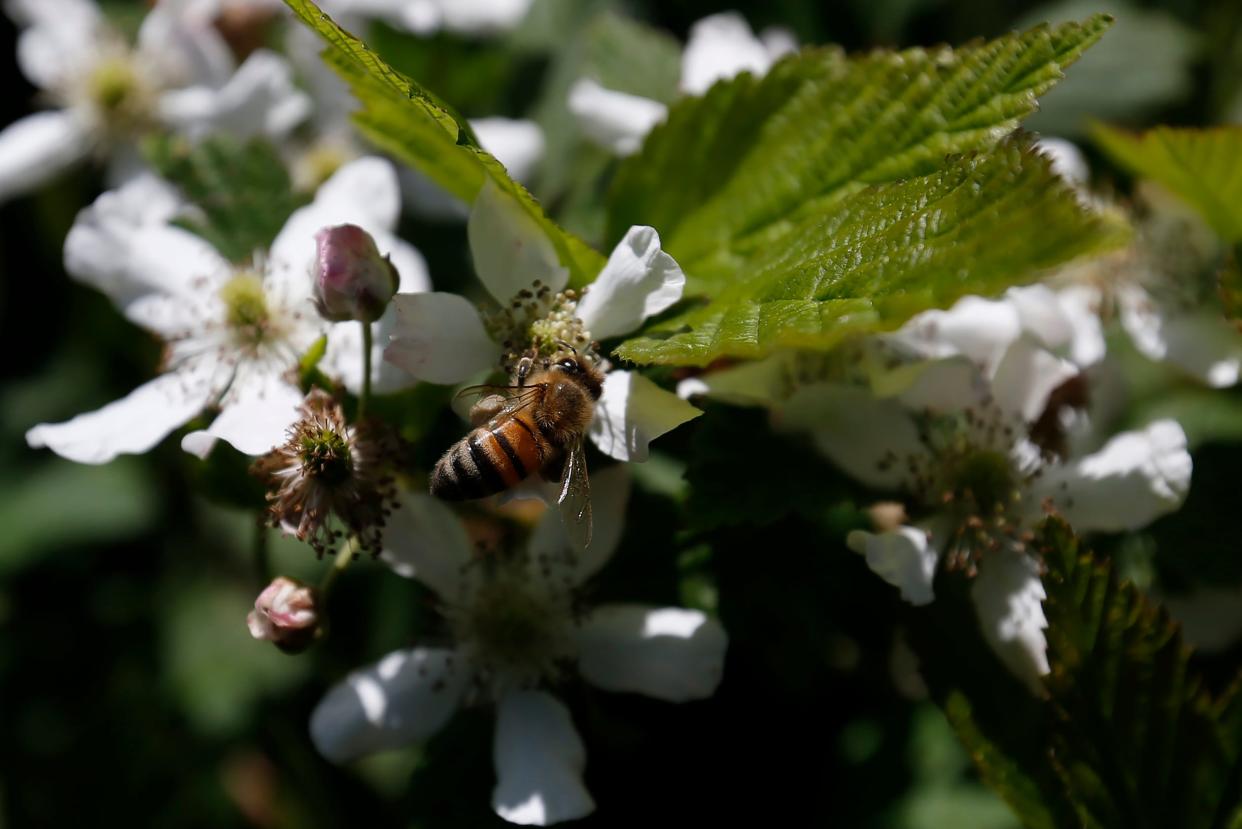UGA researchers contributed to one of the best inventions of 2023, Time magazine says

Researchers at the University of Georgia have been recognized by Time magazine as having one of the best inventions of 2023.
UGA's College of Agriculture and Environmental Sciences' Bee Program partnered with Dalan Animal Health to formulate a bee vaccine for the American Foulbrood disease, with the UGA College of Veterinary Medicine overseeing clinical lab work to support the vaccine production.
"It is our deep conviction that honeybee vaccines are transformative, with the power to make way for greater biodiversity and a more sustainable food supply,” said Dr. Annette Kleiser, co-founder and CEO of Dalan Animal Health, a biotech company pioneering insect health. “Being recognized as one of the best inventions of 2023 further validates this belief and inspires us to continue to develop solutions that support the most underserved populations in animal health.”
The annual list by Time magazine recognizes the 200 extraordinary inventions changing our lives, havingevaluated contenders on a number of key factors, including originality, efficacy, ambition andimpact. The company, which is headquartered in the University of Georgia's Innovation Hub, isbeing recognized for this major milestone in the sustainability category, according to Dalan Animal Health's press release.
Dalan Animal Health chose UGA as its headquarters for research, office space and growth, according to a UGA publication.
"UGA had the first and still only one of the very few bee medicine programs in the country, which was a big reason Dalan chose to relocate to Athens," a spokesperson from the College of Veterinary Medicine said. "Dalan is working with Dr. Joerg Mayer and using the College of Veterinary Medicine hives during the medical trial period."
The U.S. Department of Agriculture (USDA) granted a conditional license for vaccination of honeybees against American Foulbrood disease caused by Paenibacillus larvae, according to another Dalan Animal Health press release.
Tegu lizard in Athens: Tegu lizard found in Athens; new law forbids their sale beginning in December
Three yellow-legged hornets nests found: 3 more yellow-legged hornet nests reported in Georgia. Officials working to stop establishment
How does the bee vaccine work? Why is it important?
The vaccine is consumed by the worker bees who then supply food to the queen. The queen will then lay eggs that are immune to the American foulbrood disease, according to the release.
"American foulbrood disease can reduce thousands of buzzing bees to a rancid brown goo within weeks," the Time excerpt states. "The disease has no cure, and in some areas, it can infect one in four hives, threatening the work of America’s managed beehives, which are responsible for pollinating nearly a third of fruits and vegetables."
Honeybee populations have been declining for years. According to the U.S. Environmental Protection Agency, the overarching phenomenon — colony collapse disorder — was identified back in 2006, a collection of stressors such as mites, parasites and diseases causing bees to die off, as reported by the Athens Banner-Herald. Because many factors cause the decline, stopping the honeybee's demise has been a thorny problem to solve for researchers.
The USDA has issued the conditional license in the first instance for two years. Dalan will distribute the vaccine on a limited basis to commercial beekeepers and anticipates having the vaccine available for purchase in the United States in 2023, according to the release.
This article originally appeared on Athens Banner-Herald: Time best inventions 2023: UGA, Dalan Animal Health vaccine recognized

